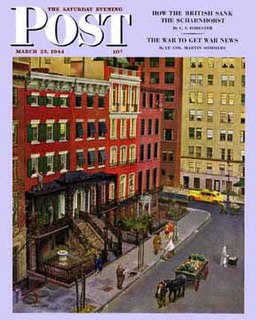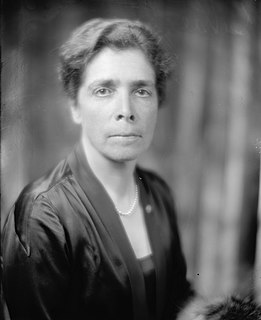 W
WThe Admiral Was a Lady is a 1950 American comedy film directed by Albert S. Rogell and starring Edmond O'Brien and Wanda Hendrix. The working title of the film was Once Over Lightly that was the title of one of the songs in the film.
 W
WChesty Anderson, U.S. Navy is a 1976 R-rated comedy film featuring Shari Eubank as Chesty Anderson, a WAVE in the U.S. Navy.
 W
WMargaret Jessie Chung, born in Santa Barbara, California, was the first known American-born Chinese female physician. After graduating from the University of Southern California Medical School in 1916 and completing her internship and residency in Illinois, she established one of the first Western medical clinics in San Francisco's Chinatown in the early 1920s.
 W
WJohn Philip Falter, more commonly known as John Falter, was an American artist best known for his many cover paintings for The Saturday Evening Post.
 W
WVirginia Crocheron Gildersleeve was an American academic, the long-time Dean of Barnard College, co-founder of the International Federation of University Women, and the sole female United States delegate to the April 1945 San Francisco United Nations Conference on International Organization, which negotiated the UN Charter and created the United Nations.
 W
WHere Come the Waves is a 1944 American romantic comedy musical film directed by Mark Sandrich. It stars Bing Crosby and Betty Hutton.
 W
WDiana Prince is a fictional character appearing regularly in stories published by DC Comics, as the secret identity of the Amazonian superhero Wonder Woman, who bought the credentials and identity from a United States Army nurse named Diana Prince who went to South America and married her fiancé to become Diana White. The character debuted in Sensation Comics #1 and was created by Charles Moulton and H. G. Peter.
 W
WArthur William Radford was a United States Navy admiral and naval aviator. In over 40 years of military service, Radford held a variety of positions including Vice Chief of Naval Operations, commander of the United States Pacific Fleet and later the second Chairman of the Joint Chiefs of Staff.
 W
WEdmund Spence Root was a United States Navy Captain who served as the 34th Naval Governor of Guam. He graduated from the United States Naval Academy in 1905, serving on many ships as an ensign. He served as the inaugural commanding officer of two ships: USS Rizal and USS Astoria. He served during World War I as commander of the U-boat hunting USS Rowan, for which he received a letter of commendation. As governor, he generated controversy by expelling 112 Japanese laborers from Guam. The Guam Museum also opened during his term of office.
 W
WMargaret Madeline Chase Smith was an American politician. A member of the Republican Party, she served as a U.S Representative (1940–49) and a U.S. Senator (1949–73) from Maine. She was the first woman to serve in both houses of the United States Congress, and the first woman to represent Maine in either. A moderate Republican, she was among the first to criticize the tactics of McCarthyism in her 1950 speech, "Declaration of Conscience".
 W
WThe United States Naval Reserve , better known as the WAVES, was the women's branch of the United States Naval Reserve during World War II. It was established on July 21, 1942 by the U.S. Congress and signed into law by President Franklin D. Roosevelt on July 30. This authorized the U.S. Navy to accept women into the Naval Reserve as commissioned officers and at the enlisted level, effective for the duration of the war plus six months. The purpose of the law was to release officers and men for sea duty and replace them with women in shore establishments. Mildred H. McAfee, on leave as president of Wellesley College, became the first director of the WAVES. She was commissioned a lieutenant commander on August 3, 1942, and later promoted to commander and then to captain.